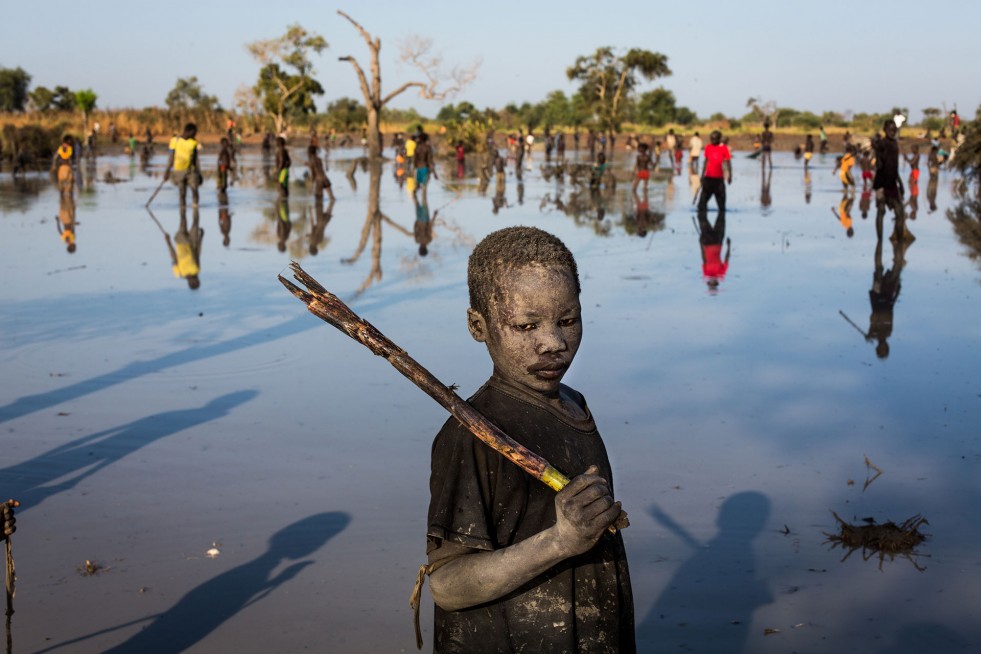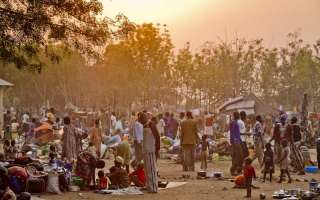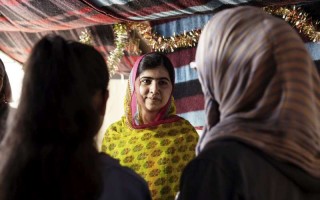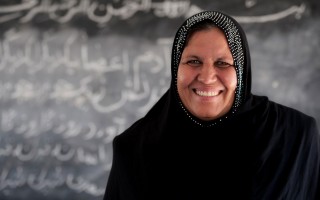
Yacob, a 10-year-old refugee, uses a stick to catch fish near Yida, South Sudan. © UNHCR / Andrew McConnell
Yida, a town surrounded by wetlands in a remote part of South Sudan, sits just 12 kilometres from the border and is home to nearly 70,000 refugees escaping conflict in Sudan. At the same time, intense fighting between opposition and government troops in South Sudan has also led many thousands of internally displaced people, or IDPs, to seek refuge here.
A great many of the people sheltering in Yida are children who were forced to flee their homes and saw their schooling put on hold. Despite limited resources, education remains a high priority among families here.
And so, many enterprising children in Yida have turned to fishing. It is not only a source of food, but also form of income – a way to pay for school fees and books and pursue a greatly prized education.





